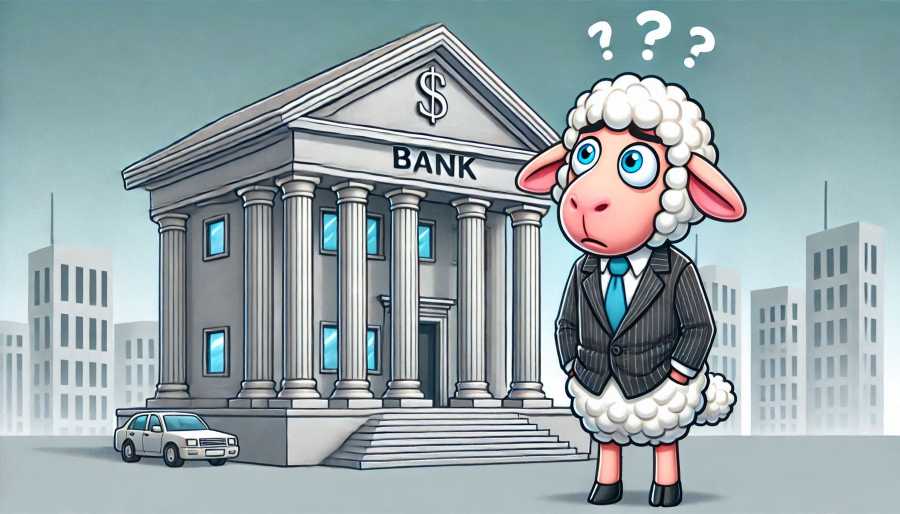Your Credit Card Is Not Your Sugar Daddy (and Other Financial Truths, Because No One Else Will Tell You)
Financial expert Maricruz Jaén Figueroa urges responsible financial education in a world of easy online banking and credit. She emphasizes budgeting, exploring diverse financial institutions beyond big banks, and understanding the role of banks in sustainable development.

Let’s talk about money, honey. Not the fun kind, the kind that makes your palms sweat and your jaw clench. The kind that, if we’re being honest, most of us avoid like a bad Tinder date. But like a bad Tinder date, avoiding it doesn’t make it go away. It just festers, grows more monstrous in the dark recesses of our minds, until it’s the size of a small, anxiety-ridden chihuahua nipping at our ankles.
Enter Maricruz Jaén Figueroa, an academic at UNAM’s Faculty of Economics, who, bless her heart, is trying to drag us kicking and screaming into the harsh light of financial literacy. And she’s not mincing words. “We must assume our financial education,” she declares, which, translated from academic-speak, means “Stop being financially illiterate, you beautiful disasters.”
Figueroa’s message, delivered on the occasion of International Bank Day (because apparently, even banks get a holiday now), is simple: we’re living in a digital age where “we have everything just a click away,” including, crucially, debt. And that click-away convenience is a siren song luring us onto the rocks of ruin. Because here’s the thing, and it’s a big thing, a neon-sign-in-Vegas-sized thing: “A credit card is not an extension of our salary.” I know, I know, shocking. It’s not free money from the magic money tree. It’s a loan, a debt, a future you-shaped hole in your wallet.
And this, my friends, is where the B-word comes in: budget. Yes, that dreaded word that conjures images of spreadsheets and deprivation. But Figueroa insists (and I’m starting to think she might be right) that a family budget is “a good starting point for decision-making.” It’s the financial equivalent of knowing where you’re going before you get in the car. Otherwise, you’re just driving around aimlessly, burning gas and your own precious time.
But it’s not just about budgeting. It’s about knowing your options. We’re so used to defaulting to the big, familiar banks, the financial equivalents of McDonald’s. But Figueroa points out that in Mexico, there are other options, “such as popular financial companies,” which might offer “more attractive conditions or ad hoc to our requirements.” It’s like discovering a hidden gem of a taqueria that serves better tacos for half the price.
And speaking of options, let’s talk about banks themselves. Figueroa breaks them down for us: specialized in financing companies, investment, microcredits, consumption, development. It’s a veritable zoo of financial institutions, each with its own peculiar habits and habitats. And then there are the international players, the multilateral institutions like the Inter-American Development Bank, the financial equivalent of the United Nations, but for money.
But with great financial power comes great responsibility. Banks, Figueroa emphasizes, must be responsible. They must “take care of the capitalization requirements” and avoid “a problem of financial mismatch.” Which, in non-finance-speak, means they need to make sure they have enough money to cover their depositors and avoid a full-blown financial meltdown. They also need to think about things like “green” mortgage loans and contributing to “sustainable development.” Because apparently, even banks have a conscience now.
And then there’s the elephant in the room, or rather, the Fintech in the app store: the new model of financial institution that offers the same services as traditional banks, but through the magic of technology. They’re dynamic, they’re less expensive to run, and they’re offering interest rates “up to 15 percent,” which, as Figueroa notes, is “striking.” It’s like discovering a new, cooler, cheaper version of your favorite store.
Before you jump on the Fintech bandwagon, Figueroa offers a word of caution: make sure they’re regulated by the National Banking and Securities Commission and “read the entire contract, including the ‘fine print.’” Because ease and dynamism can also be a breeding ground for fraud. It’s like that cool new bar that turns out to be a front for something shady.
Ultimately, Figueroa’s message is one of empowerment. We need to take control of our financial lives, to educate ourselves, to explore our options, and to demand responsibility from the institutions that handle our money. Because as she rightly points out, too many people are still saving “under the mattress” or participating in informal schemes, either out of ignorance or distrust. And that, my friends, is a challenge we need to overcome. Because in the words of Figueroa, banks are “essential institutions for the economic and social development of the country.” And maybe, just maybe, understanding them a little better can help us all develop a little better too.




